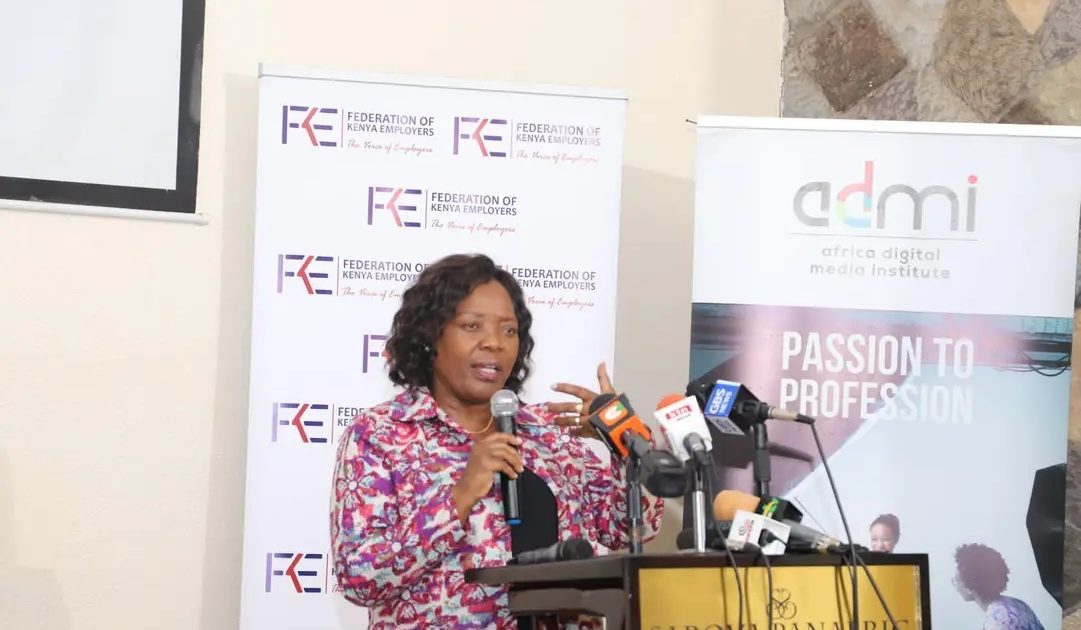Federation of Kenyan Employers (FKE) together with its partners have launched skills needs survey report which will be beneficial to employers, employees and even graduates from colleges and universities.
Speaking at the event, FKE Executive Director and Chief Executive Officer (CEO) Jacqueline Mugo stated that the survey is important towards informing the skills development agenda in the country.
While emphasizing that FKE has policies, practices and programmes that need information, she noted that it is still the responsibility of the federation to contribute towards having information to inform that agenda.
“To discuss the issue of skills at the international labour organization, we now have an instrument on apprenticeship, but it remains surprisingly a contentious issue between employers and workers,” said Mugo, adding that people need the relevant skills to be employed, drive and meet the needs of the labour market.
“At the Federation of Kenyan Employers, we want to see a very clear link to the skills that are being produced in our learning institutions to curb the future needs of the labour market,” urged Mugo, citing that the current approach to skills development is more of certificate oriented.
“Kenyans are crazy about certificates and gather them like sands at the sea shore and they are very proud to have them but do they translate into us being more employable?” questioned the CEO.
Further, she called upon learning institutions to come up with curriculums that will catch up with the market changes, stressing the importance of monitoring these changes by the institutions to ensure the skills that the people have respond to the dynamics in the labour sector.
“It is therefore important for Kenyans and Africans at large to harness the benefits of labour migration so that they migrate to the high-level skills rather than those of lower levels for them to be employed in any part of the world,” added Mugo.
According to the CEO, FKE together with its members employ more than 70 percent of the formal private sector wage employees in Kenya with the latter being just a quarter of the working population in this country.
Additionally, she observed the need to look at the informal economy, stating that the role of the federation is to build the capacity of the employers and to influence the environment in which business is done.
“We do this through advocacy, effective representation, social dialogue and through the provision of value-added services,” Mugo highlighted.
She at the same time said that the federation has a huge and broad role in representing employers at national, regional, continental and global levels.
“Skills are essential assets of individual businesses and society at large and to cope with the rapidly changing levels, market workers need to benefit from lifelong learning,” Mugo advised.
Mugo added that the training programme must fill the skill gaps in the country and also address the imbalances between supply and demand to meet the dynamics of the labour market.
“We as the FKE had to cope when Covid happened, we had to cope with a new world, and we are all coping with the technological changes that have happened in the world and which have impacted the labour skills,” she remarked.
By Juma Nalami and Silus Waswa




